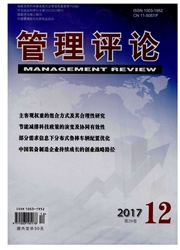

 中文摘要:
中文摘要:
交易费用的广泛存在会削弱碳市场的成本有效性。本文首先构建了一个考虑交易费用的省际碳交易机制模型,从理论层面研究交易费用与碳价、交易量等变量的均衡关系。随后,以“十二五”期间六个碳交易试点为例,从成本有效性的视角探讨交易费用对我国碳市场的影响。结论显示交易费用与均衡碳价存在正向关系、与均衡交易量间存在反向关系,每增加一单位交易费用,均衡碳价大约上升0.57元,潜在碳交易量下降0.31百万吨。交易费用的增加将会抑制参与主体的交易积极性,进而降低碳市场的成本有效性。随着边际交易费用增加,天津和上海可能会率先退出市场,特别地,当边际交易费用高达70元/吨CO_2时,碳交易市场可能失效。本研究揭示了交易费用在碳市场设计中的重要性,未来我国构建全国统一碳市场需要考虑交易费用影响。
 英文摘要:
英文摘要:
Transaction costs play a significant role in cost saving of carbon trading market. In this paper, we develop an inter-provincial carbon-trading model to theoretically examine the relationships between transaction costs and equilibrium carbon price and trading volumes, and empirically analyzing the impacts of transaction costs on cost-effectiveness of China' s carbon trading market. We find a positive relationship between equilibrium carbon price and transaction costs, and a negative relationship between transaction costs and trading volumes. Specifically, increase of the transaction cost by each unit leads the equilibrium price to increase by 0.57 Yuan and the trading volume to decrease by 0.31 million tons. Besides, the rising of transaction costs heavily restrains the trading initiative of market agents, then weakens the cost-effectiveness of permits trading market. As the transaction cost increases, Tianjin and Shanghai would be the first two agents staying out of the trading market ; if the marginal transaction cost crosses the threshold of 70 Yuan per ton of CO2 , the trading market will be in failure. This paper emphasizes the importance of transaction costs in mechanism design of carbon trading market, and indicates the policy makers should pay attention to the transaction costs for establishing the national united carbon trading market in the future.
 同期刊论文项目
同期刊论文项目
 同项目期刊论文
同项目期刊论文
 期刊信息
期刊信息
